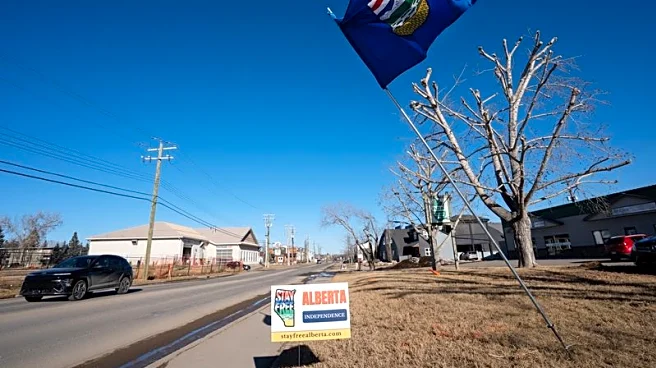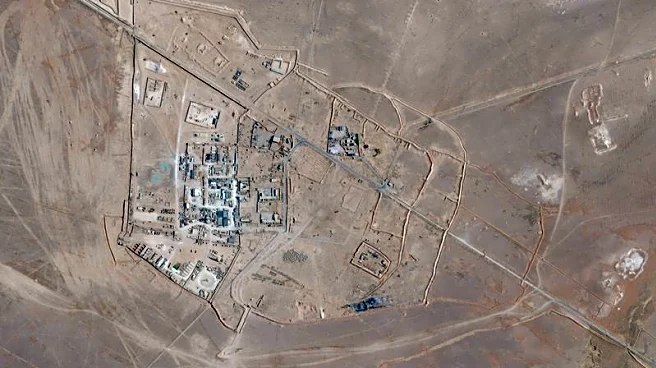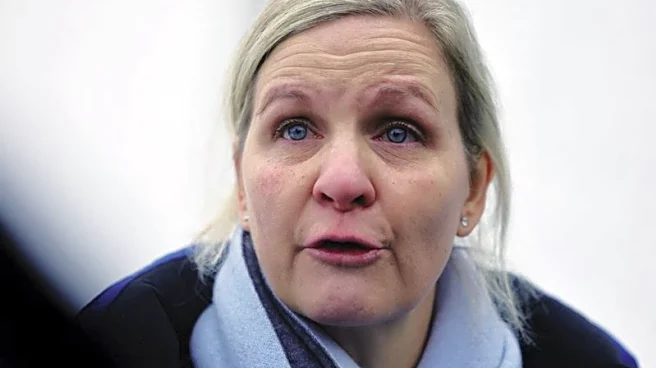What is the story about?
What's Happening?
President Trump has revoked the Secret Service protection for Kamala Harris, which had been extended by an undisclosed order from former President Joe Biden. Harris, as a former vice president, was entitled to six months of protection after leaving office, which ended on July 21. However, Biden had extended her protection for an additional year, a directive that was not publicly disclosed until now. Trump's cancellation of this order comes as Harris is set to embark on a multi-city book tour for her memoir '107 Days,' increasing her public exposure. The Secret Service and the White House have not commented on the revocation, and Harris' aides express concern over losing access to threat intelligence and security coverage.
Why It's Important?
The revocation of Harris' Secret Service protection raises significant security concerns, especially as she prepares for a high-profile book tour. Harris, the first woman and first Black woman to serve as vice president, has faced heightened security threats. The loss of federal protection could leave her vulnerable, and the cost of private security could be substantial. The decision has sparked political controversy, with California Governor Gavin Newsom and Los Angeles Mayor Karen Bass expressing outrage and concern for Harris' safety. This move is seen by some as part of a pattern of political retaliation by Trump, affecting the security of public officials.
What's Next?
With the Secret Service protection revoked, Harris may need to rely on local law enforcement for security during her public appearances. Discussions between California Governor Newsom and Los Angeles Mayor Bass are ongoing to ensure Harris' safety. The situation may prompt further political debate and scrutiny over the security arrangements for former high-ranking officials. Harris' aides are likely to explore alternative security measures to mitigate potential threats during her book tour.
Beyond the Headlines
The revocation of Harris' protection highlights broader issues of political retaliation and the security of public officials. It raises ethical questions about the use of security measures as political tools and the implications for the safety of individuals who have served in high-profile roles. The situation underscores the need for transparent and consistent security protocols for former officials, regardless of political affiliations.
















